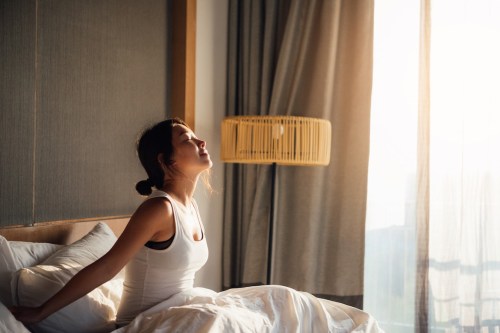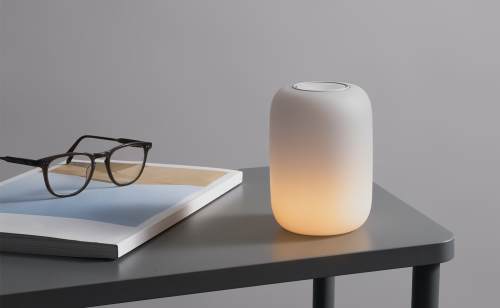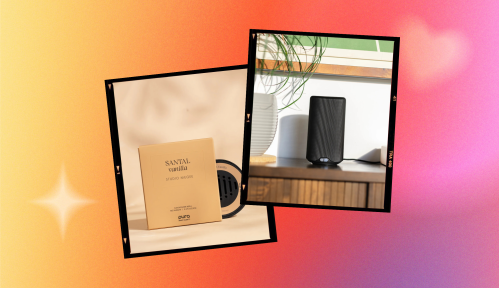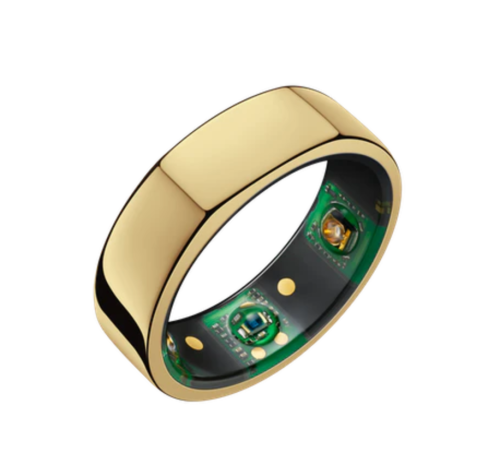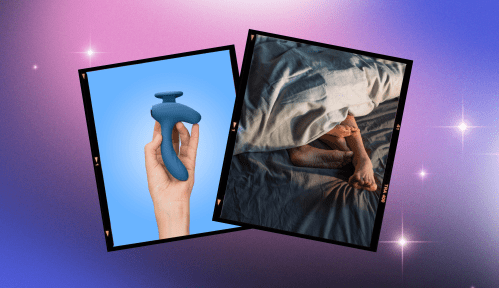Our editors independently select these products. Making a purchase through our links may earn Well+Good a commission
In a world that’s very much go-go-go, you may feel inclined (or even pressured) to wake up earlier in an attempt to make the most of your day. The question is, however, does forcing yourself to wake up an hour earlier actually help? And if so, are there ways to make the process more enjoyable? To find out, we chatted with Michael Breus, PhD, (aka “The Sleep Doctor”) and sleep expert Tara Youngblood, co-founder and CEO of Chilisleep, a brand geared toward enhancing rest.
Experts in This Article
sleep expert and clinical psychologist
Tara Youngblood is the co-founder and CEO of Chilisleep, a brand geared toward enhancing sleep
The benefits of waking up an hour earlier
According to our experts, there aren’t really any tangible benefits to waking up an hour earlier. Sure, it might give you more time for yourself before your workday starts, which can make you feel more prepared for putting your all into your work, however, it also takes away from the time you have at night, as you’ll need to go to bed earlier to compensate for the new sleep schedule. Because of this, Dr. Breus actually doesn’t recommend laboring over creating an earlier rise schedule.
“Unless you are an early bird, there are no benefits,” he says. “I would argue this is a total waste of time, and goes against your biology, and is a bad idea in general.”
Instead, both he and Youngblood recommend taking a chronotype quiz to determine your cognitive best.
“Sleep should not be a one-size-fits-all endeavor,” says Youngblood. “Happiness and productivity are absolutely tied to quality sleep, but quality sleep should not be tied to a specific schedule (which therefore can be a challenge for night owls.).”
Furthermore, Breus actually wrote an entire book on this subject. It’s called The Power of When and helps uncover when the ultimate sleep schedule for your particular chronotype, in which there are four. (For more information, click here.)
How to train yourself to wake up an hour earlier
Still, if you’re an early bird (or wannabe early bird) who is mesmerized by the idea of maximizing your before-work time, you may want to learn how to train yourself to wake up earlier. While our experts don’t recommend it, they do have tips to help.
“Training yourself to wake up an hour earlier is just like training yourself for a long flight where you know you will get jet lag,” explained Dr. Breus. “The issue is that you can never 100 percent train your body without doing it every day.” The reason being is that we all have genetically predetermined chronotypes. (So, if you’ve ever heard someone say that they’re not a morning or night person, it’s very much so a real thing.)
Since chronotypes play such a pivotal role in our quality of sleep and ability to rise, Dr. Breus says that moving toward your chronotype is much less challenging than moving away from it. “Asking an early bird to get up earlier will be easier than asking a night owl to get up earlier,” he says.
Products that help make waking up earlier easier
If you’re a night owl looking to reframe your sleep and are ready to dedicate the daily time and energy necessary to do so, there are some tools that can help.
Casper Glow Light — $131.00
The Casper Glow Light is designed to dim and brighten like the sun, giving your circadian rhythm the kick start it needs to rise gently. You set the Glow Lights to your preferred schedule.
Olly Sleep — $14.00 to $18.00
The Olly Sleep gummies contain melatonin, L-theanine, and botanicals to help you drift off. Take the gummies an hour or so before you’re hoping to fall asleep.
Oura Ring — $399.00
The Oura Ring is a game-changer at helping folks better understand the ways in which they sleep. It’s a biometric tracking device that you wear on your finger, just like you would wear any other ring.
“What I would do is I would look at two weeks worth of data on my Oura (or on my patients’—I require them all to use one), and see if there is a natural time when my body was done with REM sleep and then determine a wake-up time from there (if trying to get up earlier),” sas Dr. Breus. “This way, I avoid losing precious REM sleep which helps with mental restoration. Also, I am waking up then out of a less deep stage of sleep (which should be easier).”
How long it takes to establish a new sleep schedule
It’s subjective. That said, both Dr. Breus and Youngblood agree that it typically takes two to three weeks for the mind and body to adjust. “But this is with daily use of Melatonin, strict scheduling, and light therapy,” Dr. Breus adds, noting that it’s not an exact science since everyone is different.
Be mindful of the alarms you use. If you’re not confident in your ability to rise to light-centric alarms alone, opt for a calm audible alarm that will ease you into your day.
“Alarms can be very disruptive,” says Youngblood, noting that the calmer one can wake, the calmer one can start the day. “The best way to wake up is with light and/or temperature, just as our cave-dwelling ancestors did. If neither of those options are available, or seem to get you up and out on time during the week, then softer, more soothing sounds are best.”
More sleep tech that’s worth the investment:
Oh hi! You look like someone who loves free workouts, discounts for cutting-edge wellness brands, and exclusive Well+Good content. Sign up for Well+, our online community of wellness insiders, and unlock your rewards instantly.
Sign Up for Our Daily Newsletter
Get all the latest in wellness, trends, food, fitness, beauty, and more delivered right to your inbox.
Got it, you've been added to our email list.
